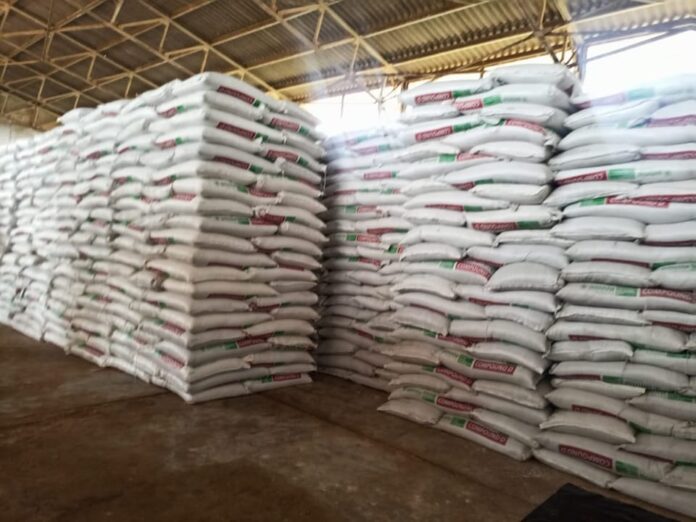By John Nyambe Kalunga.
THE FARMER INPUT SUPPORT PROGRAM (FISP) IS 100 PERCENT ON COURSE.
The delayed distribution of farming inputs under the Farmer Input Support Program has been seized upon with both hands by the opposition in a malicious attempt to viciously attack the UPND government, misleadingly pronouncing a failure in the new supply chain mechanism even though all 116 districts have started receiving seed and fertilizer as promised by the Ministry of Agriculture.
Incessantly virulent attacks have been the order of the day even after Agriculture Minster Hon Mtolo Phiri flagged off the distribution to all parts of the country. Even President Hichilema on a recent visit to North Western province, while acknowledging the delays, assumed that all was well and measures had been put in place to ensure smooth countrywide distribution of inputs by the end of November in the prescribed quantities. To expedite the movement of the inputs the night ban on movement of trucks has been lifted for this exercise, among other measures.
It is ironic that the same people who had created a corrupt and opaque system of procuring inputs for their individual and collective benefit, are now standing on roof tops, condemning a government that has set about the business of transparently and accountably delivering subsidized inputs to deserving Zambians beyond party, tribal or ethnic lines.
While, as is expected and accepted when transitioning from a flawed to a seamless system and teething problems are inevitable, it is important that Zambians understand why this paradigm shift has been necessitated mainly to achieve a corrupt free procurement system.
Under the Patriotic Front two companies Neria Investments and Miombo Investments dominated the input supply business. Their pricing was unregulated as they enjoyed a monopoly and acted as a cartel in cohorts with PF officials.
Certain individuals such as lawyer Bokoni Soko at Neria were coopted onto the company’s boards of directors to ensure that the interests of senior PF and government officials are represented and taken care off. Bokani Soko is the individual who infamously supplied obsolete fire tenders at US$1 million dollars each to the Ministry of Local Government in the last regime.
It would have been folly and purpose defeating had previous suppliers been allowed to continue. Some have argued that as they had established supply chains over the years the suppliers should continue as changing suppliers would disrupt the supply chain and cause late distribution which would in tun threaten national food security, going forward.
However this was a risk that had to be taken for the greater good as these companies had done irreparable harm to the Zambian treasury. For example, former Agriculture permanent secretary Songowayo Zymbo and his officials are in court for certifying and processing payment of US$131 million for inputs that were never delivered by Neria Investments.
It was, therefore, imperative that the new dawn government engages new honest suppliers for the benefit of Zambian agriculture and to save billions of kwacha that had been gong into individual’s pockets.
Already government has saved US$150 million on this years’ inputs. From the budgeted US$522 million the same inputs have cost US$369. This money saved would have gone to unscrupulous government and party officials as well a businessmen connected to the PF.
The changes being made have not been limited to suppliers. The government has embarked on what is known as the Comprehensive Agriculture Support Program (CASP). This is a more sustainable system that will give farmers other high value crop seed on top of maize allowing the farmer to become self reliant in the near future.
This takes care of the problem of framers being on FISP in perpetuity, continuously depending on subsidized seed and never being able to be weaned off to allow for newer beneficiaries as a way of growing the agriculture sector.
